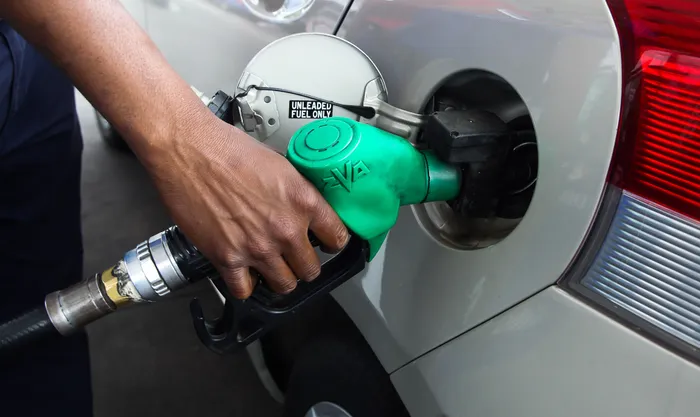
The increase in the Diesel price which came into effect on Wednesday has raised concern from the trucking and agriculture industry.
Image: Jacques Naude / Independent Media
The recent announcement of a diesel price hike has sent shockwaves through South Africa’s vital trucking and agricultural sectors.
Effective from Wednesday, prices for Diesel (0.05% sulphur) have surged by 65 cents per litre, while Diesel (0.005% sulphur) has seen an increase of 63 cents per litre.
This news follows a decrease in petrol prices earlier in August, adding a layer of complexity to the economic landscape.
Tonny Molise, deputy president of the Truckers Association of South Africa (TASA), said they noted that diesel price increases were implemented alongside the recent decision to lower the interest rate by 25 basis points.
“While fuel hikes inevitably raise operational costs in the road freight and logistics industry, we welcome the interest rate cut as a much-needed stimulus for the economy. The lower borrowing costs place more disposable income in the hands of consumers," Molise said.
"This is a positive sign, as sustained consumer spending is essential not only for economic stability but also for the freight and logistics environment we operate in.”
Molise added that the 30% increase in trade tariffs by the United States on South African exports, with an additional 10% applied due to our membership in BRICS, is particularly alarming.
“These tariffs are already weighing down trade volumes and contributing to a 0.25% contraction in GDP.”
Waldo Krugell, professor of economics at North-West University, said it was not often that petrol and diesel price changes diverge.
“This time the diesel price increase has more to do with low stock internationally than with the crude oil price or the exchange rate. It will increase the costs of commercial diesel users, like in transport, but also in agriculture.”
Francois Rossouw, the CEO of the Southern African Agri Initiative (Saai), said that the 65c per litre increase in diesel was a major blow to the agricultural sector, particularly for family farmers already under immense financial pressure.
“Diesel is not a luxury input in our industry — it is essential. From land preparation and planting to harvesting and irrigation, nearly every stage of production in South African agriculture depends heavily on diesel-powered machinery and transport," Rossouw said.
"This price hike comes at a time when farmers are grappling with rising input costs, unreliable electricity supply, and erratic weather patterns."
Rossouw added that for many, diesel was the only viable energy source to keep operations running — whether that’s driving tractors or powering generators during load shedding.
“Every cent added to the diesel price eats directly into farmers’ already thin profit margins, and for smaller family farms, that could be the difference between staying operational or going under," he said.
"It’s particularly concerning that the increase comes during the build-up to the summer planting season in many regions. Input costs like diesel need to be predictable and affordable if we want to maintain national food security and rural livelihoods.”
Investec economist Lara Hodes added that the modest increase in diesel prices might add slightly to the monthly producer inflation reading as petrol prices decreased, weighing on already constrained manufacturers, with a number of sectors facing elevated tariffs from the US.
Tracey-Lee Solomon, an economist from the Bureau for Economic Research, said that the second consecutive increase in diesel prices will put even more pressure on cash-strapped motorists.
“Diesel is now at its highest level since March. While the latest increase in diesel prices is unlikely to result in a significant rise in the cost of goods, prolonged increases coupled with other cost pressures could result in higher prices," Solomon said.
"Most consumer goods are transported by large diesel-using trucks and are thus sensitive to diesel price changes.”
BUSINESS REPORT